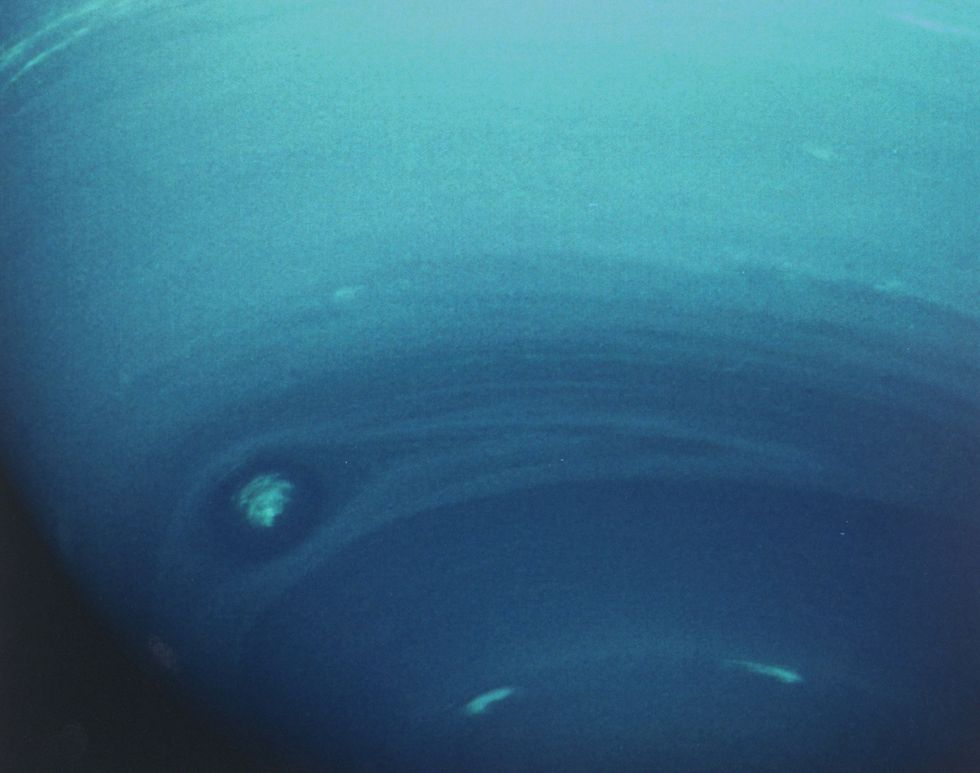
Posted on 02/15/2018 2:32:31 PM PST by Red Badger

Like Jupiter, Neptune has a giant spinning mystery. NASA's Hubble Telescope captured a time-lapse of the storm for the first time and found a surprising conclusion—it is shrinking.
Officially called a "dark vortex," the Neptunian storm shares a few properties with Jupiter's Great Red Spot (GRS). Like the GRS, a dark vortex is moving in a anti-cyclonic direction that sweeps up material from the planet's icy atmosphere.
“We have no evidence of how these vortices are formed or how fast they rotate,” said Agustín Sánchez-Lavega from the University of the Basque Country in Spain in a NASA press statement. “It is most likely that they arise from an instability in the sheared eastward and westward winds.”
Unlike Jupiter's spot, which is more than 200 years old, Neptune's dark vortex has only been visible in recent years. It is possibly made of hydrogen sulfide, and NASA notes that it might have "the pungent smell of rotten eggs."
Neptune's is also the first dark vortex to be captured while (presumably) dying. When first spotted in 2015, the oval was 3,100 miles long. However, Hubble's latest shots from October 2017 show it at 2,300 miles across. That many miles of rotten eggs is nothing to sneeze at, but it is shrinking nonetheless.
As the end nears, the dark vortex isn't moving across the planet like scientists thought it would.
“It looks like we’re capturing the demise of this dark vortex, and it’s different from what well-known studies led us to expect,” says Michael H. Wong of the UC Berkeley, referring to previous work done at the University of Louisville. Earlier research used simulations to predict "that anticyclones under Neptune’s wind shear would probably drift toward the equator. We thought that once the vortex got too close to the equator, it would break up and perhaps create a spectacular outburst of cloud activity.”
But the dark vortex on Neptune has apparently decided that it's better to fade away than to create a spectacular outburst. As it moves towards the planet's south pole, the storm is getting smaller and smaller. Astronomers don't know for sure when the storm will finally end. When it does, don't be surprised if more rise up. Various storms have been spotted on Neptune since the 1980s when Voyager 2 made a flyby.
“No facilities other than Hubble and Voyager have observed these vortices. For now, only Hubble can provide the data we need to understand how common or rare these fascinating neptunian weather systems may be,” says Wong.
By next year, NASA is likely hoping that the James Webb telescope will be able to shed more light on the smelly subject.
Source: NASA


LOL!
Planet Lives Matter?
...it’s different from what well-known studies led us to expect,” says Michael H. Wong of the UC Berkeley, referring to previous work done at the University of Louisville. Earlier research used simulations...
Imagine that!
You think this is bad, you should smell Uranus!
Hydrocarbons, definitely. Probably natural gas (CH4), but no crude oil, which are derived predominantly from microbes. Unless there are microbes in the subsurface.
Their microfossils can be derived from terrestrial deposits.
Disclaimer: Opinions posted on Free Republic are those of the individual posters and do not necessarily represent the opinion of Free Republic or its management. All materials posted herein are protected by copyright law and the exemption for fair use of copyrighted works.